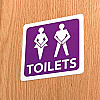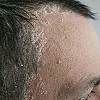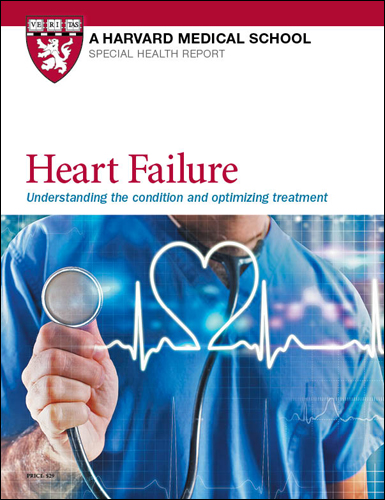Don't delay if heart failure symptoms worsen

A phone call to a nurse or doctor could keep you out of the hospital.
The term "heart failure" conjures up the image of a heart on the verge of beating for the last time. Not so. In this context, failure means that the heart isn't able to pump enough blood to meet the body's needs. Common consequences include fatigue, shortness of breath, and swelling in the legs.
Heart failure is a very manageable condition. Taking medications, balancing exercise and rest, following a low-sodium diet, and being careful about fluid intake can keep it in check and minimize symptoms. But heart failure can be a trickster. After a long stretch of being under control, it can flare up, and symptoms can get so bad that hospitalization is needed to control them.
Sometimes these flare-ups come from out of the blue, caused by an infection or a medication (such as a nonsteroidal anti-inflammatory drug, like ibuprofen). Most of the time, though, they creep up, announcing themselves with subtle changes like being more tired than usual or quickly gaining several pounds (see "Warning signs of worsening heart failure").
Many people ignore these early warning signs. One thing that keeps many people from calling for help is that they don't recognize their symptoms as being related to their heart failure. Living with these sometimes subtle symptoms day in and day out also makes it difficult to tell when they are getting out of hand.
Warning signs of worsening heart failureIf you have heart failure, call your doctor if you notice any of these signs:
|
Flare-up prevention
Over six million Americans are living with heart failure. This condition accounts for more than one million hospitalizations each year. About half of these are preventable. How? By paying attention to your body, your symptoms, and the treatments your doctor recommends.
Here are five ways to help monitor and prevent heart failure flare-ups:
Diet. The more fluid in the body, the harder the heart must work to circulate it. The best way to control fluid is by watching how much sodium and fluid you take in each day. Aim for no more than 1,500 milligrams (mg) of sodium and 2 liters of fluid (about 8 cups). Avoiding sodium (from table salt, soy sauce, and other sources) can be difficult, especially when eating out or when using prepared foods. An order of chicken lo mein sounds healthy, but it can deliver more than 3,000 mg of sodium. And when monitoring your fluid intake, remember that fluids include anything you drink — water, coffee, tea, juice, soda, alcohol, and even ice.
Medications. Take your medications on time, even if you are feeling fine. Skipping medications for even a day can cause fluid to build up in the body, which strains the heart.
Activity. Walk or do other physical activity every day. In addition to strengthening your muscles and helping your heart, physical activity can make you more aware of worsening shortness of breath or other symptoms.
Weight. Weigh yourself every day, preferably right after getting out of bed and going to the bathroom. A gain or loss of 2 pounds from the day before should sound an alarm. If the gain or loss persists or increases the next day, call your doctor.
Symptoms. Be on the lookout for any of the problems listed in "Warning signs of worsening heart failure."
Taming the dips
Having heart failure is a bit like driving along a nicely paved road with unexpected dips and potholes — long stretches of smooth sailing pocked by periods of worsening symptoms.
When the heart is working overtime just to meet the body's basic needs, little things that make it work harder can push stable, manageable heart failure into a flare-up. Skipping medicines for the day or eating a really salty meal can be all that's needed to trigger a heart failure flare-up.
If you aren't sure which symptoms are related to your heart failure, ask your doctor or nurse. And if they begin to worsen, call your doctor right away. A simple phone conversation could keep your symptoms in check and save you from a stay in the hospital.
Image: Moyo Studio/Getty Images
Disclaimer:
As a service to our readers, Harvard Health Publishing provides access to our library of archived content. Please note the date of last review or update on all articles.
No content on this site, regardless of date, should ever be used as a substitute for direct medical advice from your doctor or other qualified clinician.
















